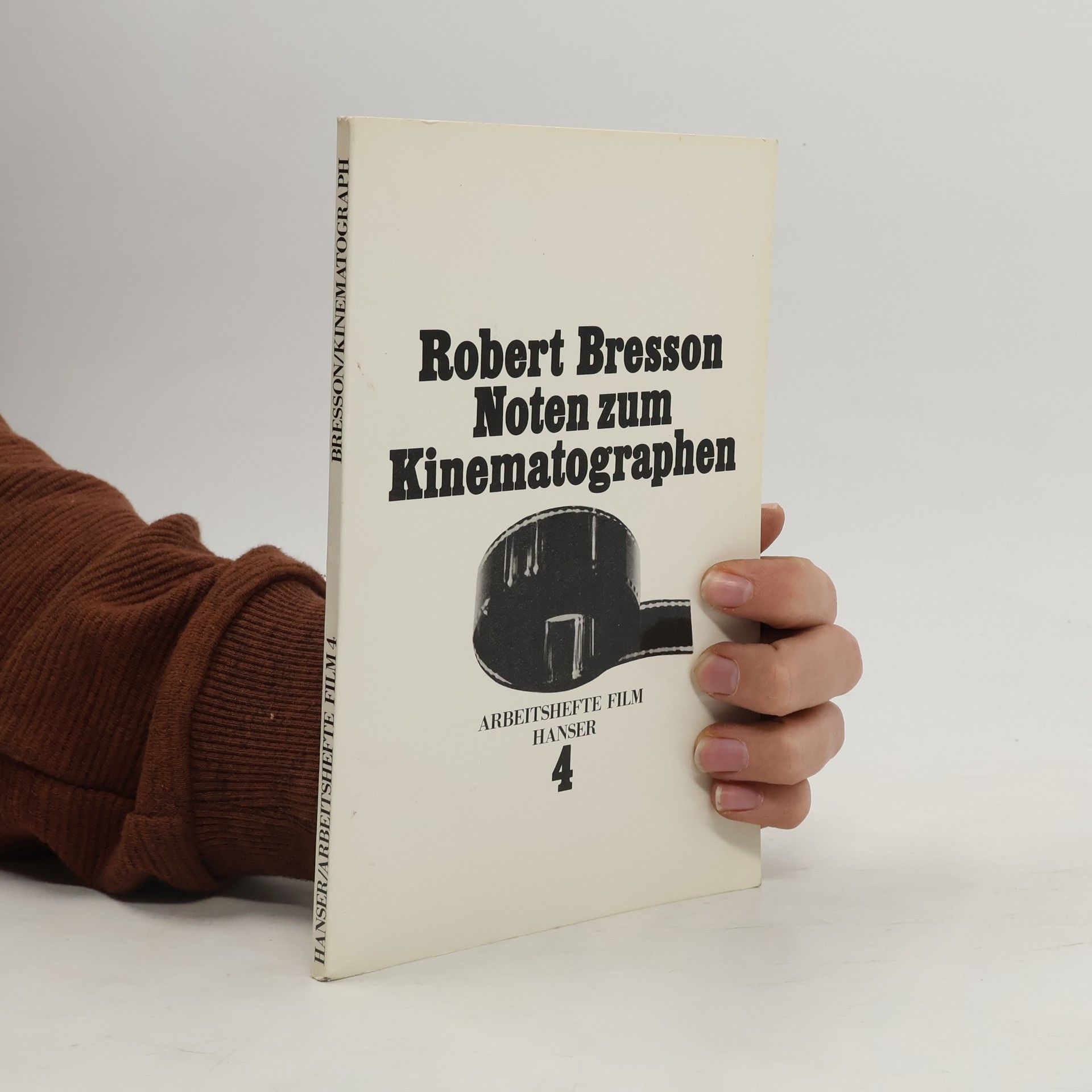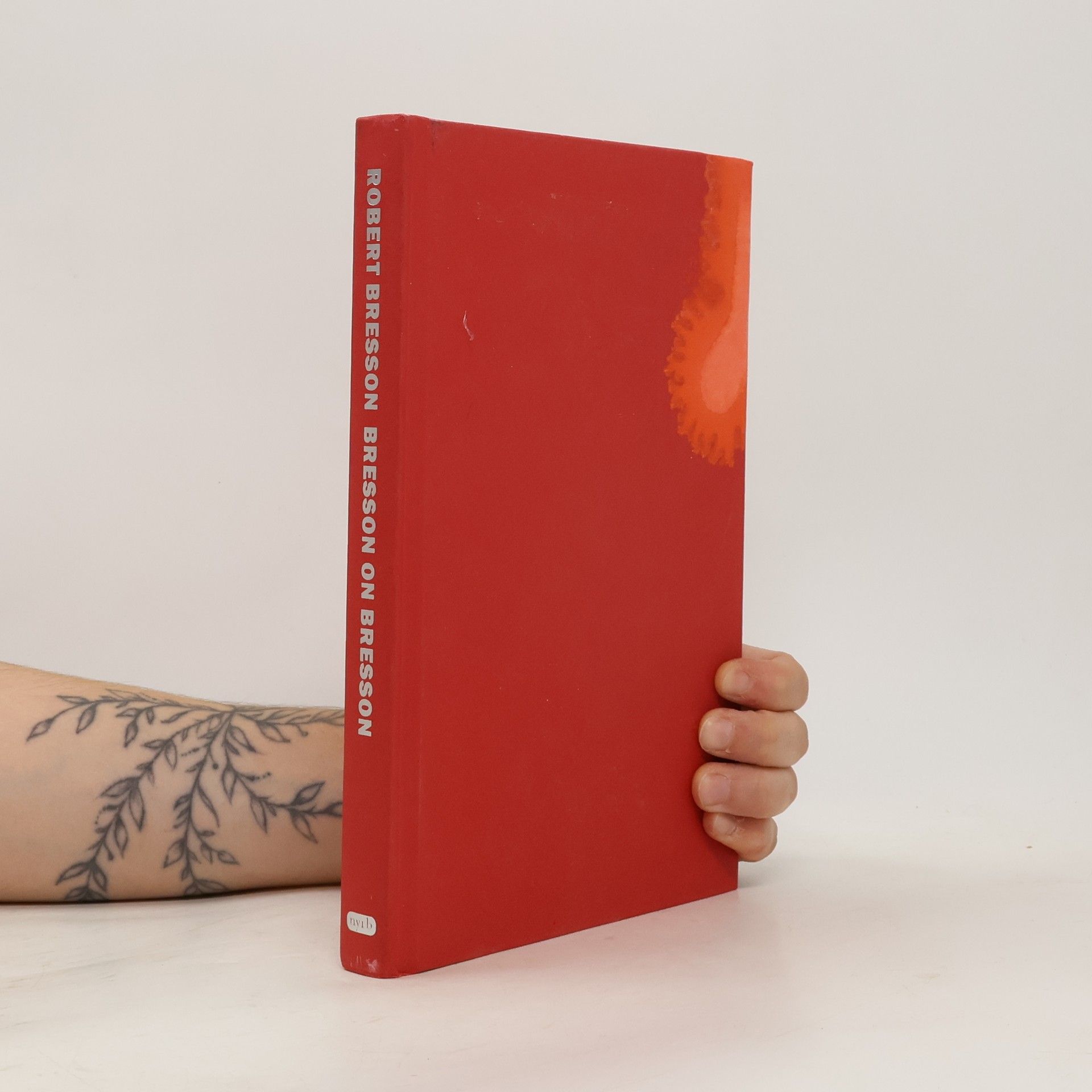Poznámky o kinematografu
- 115 stránek
- 5 hodin čtení
Kniha postřehů, formulovaných s tvarovou dokonalostí aforismů, francouzského filmového režiséra, jehož dílo je výrazně individuální a nenapodobitelné a nelze je zařadit do žádného proudu či směru.
Robert Bresson byl francouzský filmař známý svým duchovním, asketickým a estetickým stylem, který významně přispěl k umění filmu a ovlivnil vzestup francouzské nové vlny. Jeho přístup k filmařině byl často popisován jako nejvýše ceněný francouzský filmař po Jeanu Renoir. Bressonův vliv byl tak zásadní, že ho Jean-Luc Godard jednou popsal slovy: „Robert Bresson je francouzská kinematografie, stejně jako Dostojevskij je ruský román a Mozart je německá hudba.“ Jeho práce se vyznačuje hlubokou introspekcí a jedinečným způsobem vyprávění.






Kniha postřehů, formulovaných s tvarovou dokonalostí aforismů, francouzského filmového režiséra, jehož dílo je výrazně individuální a nenapodobitelné a nelze je zařadit do žádného proudu či směru.
Robert Bresson, renowned for films like Pickpocket and A Man Escaped, stands as a pivotal figure in French cinema, known for his unique approach and steadfast principles. He favored nonprofessional actors, rejected cinematic trends like Cinerama and Cinema-Scope, and criticized the detrimental effects of capitalism and the studio system on the art of film. This collection assembles key interviews from Bresson's forty-year career, revealing the coherence and exploratory nature of his work. Each chapter focuses on one of his fourteen films, addressing topics such as literary adaptation, soundtracks, and his influential book, Notes on the Cinematograph. His reflections are punctuated by memorable insights, including the idea that "Sound ... invented silence in cinema" and the belief that "It's the film that ... gives life to the characters." Bresson's integrity and originality garnered respect from filmmakers like Jean-Luc Godard and Jacques Rivette. His films, characterized by meticulous deliberation, are equally fueled by a deep respect for audience intuition, emphasizing that "It's always ready to feel before it understands." This collection offers a profound glimpse into the mind of a director whose work continues to inspire.
Robert Bresson, renowned for his films like *Pickpocket* and *A Man Escaped*, was a pivotal figure in French cinema, known for his distinctive approach. He preferred nonprofessional actors, rejected advancements like Cinerama, and critiqued capitalism's impact on film. *Bresson on Bresson* compiles significant interviews from his forty-year career, showcasing the coherence and exploratory nature of his work. Each chapter focuses on one of his fourteen films, discussing literary adaptation, sound design, and his influential treatise, *Notes on the Cinematograph*. Bresson’s reflections are marked by insightful mantras, such as “Sound...invented silence in cinema” and “It’s the film that...gives life to the characters.” His integrity and originality garnered respect from contemporaries like Jean-Luc Godard and Jacques Rivette. While his films exhibit meticulous thought, these interviews reveal his deep faith in intuition—both his own and that of the audience, which he believed is primed to feel before fully understanding. This belief underscores the profound connection he sought to establish through his art.
The members of two seemingly conflicting reading groups--Love and Anti-Love--connect in surprising ways after climate catastrophe upends their routines in this new novel from Anna Moschovakis.